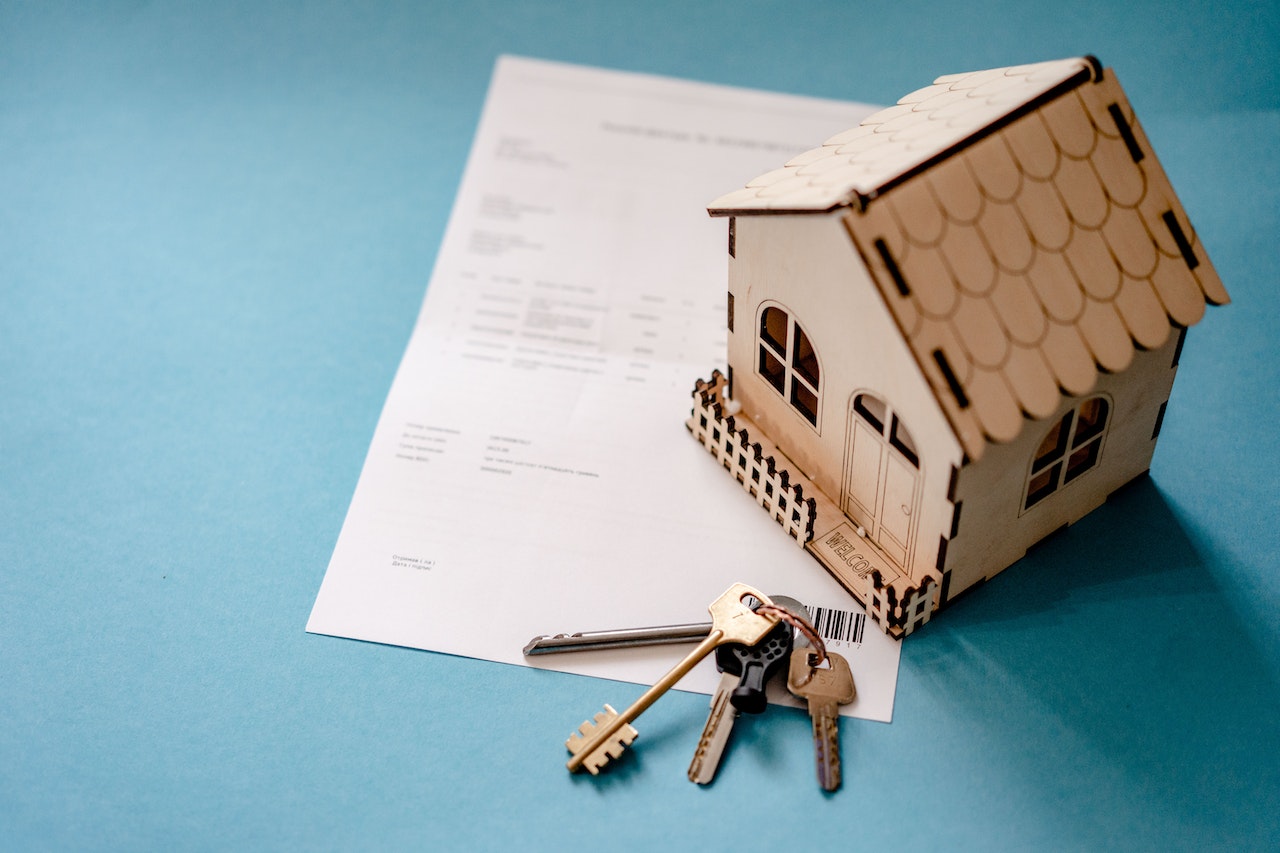It’s a well-known fact that mortgage rates in Canada are at an all-time low and this has significantly increased the number of buyers looking for a home. Families may have more financial freedom than ever before, but knowing when to buy a house is just as important as having the means to do it.

Whether you’re looking to acquire your first property, downsize your current home, or find a bigger place, there are many great reasons to purchase a piece of property. There is no such thing as perfect, but there are certainly tell-tell signs that can help you decide when is the best time to look for your next home.
10 Signs You Should Buy a House
You’ve probably read this many times before, but real estate is the biggest purchase you will ever make.
Besides making sure that you’re mentally ready for the challenge, you also have to keep your debt in check and save enough money for a down payment. As a matter of fact, for many families, this is the first sign they are ready to purchase a new home.
Having thousands of dollars in debt will reduce your chances of getting a big mortgage. Not only this, there’s a strong chance you’ll only be offered high loan rates, which impacts the type of property you can purchase. If you clear your debt and manage to save enough money for a decent down payment, you’ll appear more financially stable and potentially qualify for a bigger mortgage loan.
Here are 10 additional signs you are ready to enter the real estate market as a buyer.
1. You Don’t Want or Have to Pay Rent Anymore
If you’re wondering when to buy a home, the answer may be as simple as whenever you’re ready to stop paying rent.
Almost everyone starts by renting a house because it’s easier, simpler, and more affordable. Families may feel inclined to purchase a home simply because they now have the financial flexibility, and rightfully so. After all, if you’re renting a property, you’re likely helping the owner pay off the mortgage on his or her home, so you may as well make monthly payments for a home that’s actually yours.
It’s common to experience this feeling after getting a raise or ascension to a new position at work, inheriting a large amount of money, or finishing paying off your current mortgage. Just remember to bring this up with your real estate agent so that this professional has your goals in mind during the whole process.
2. Your Family is Growing
Are you asking yourself “am I ready to buy a house?” after adding a new member to your family? If this is the case, the answer is probably a “yes”.
Adding a new family member to your household means that you’ll need more space. If it’s your first child, you may also be thinking about having a bigger outdoor space. This is not usually possible if you’re renting or already own property that has a small backyard, so your best bet is to get your personal finances in check and hit the market.

Many lenders take the number of dependents into consideration before determining the type of rates you qualify for. You should make adjustments to your financial projections and factor in the additional expenses that come with adding a new family member. Even if you have a stable income, you’ll need to ensure that your living expenses square up nicely against your revenue to get good rates.
3. Your Family Home is Getting Emptier
While many families are welcoming new members, others are seeing off their kids to college and the real world in general. At this point, many families take a step back and ask themselves “is now a good time to buy a house?”
Having an empty house can become problematic for a few reasons, including both sentimental and practical factors. For starters, making improvements and changes that enhance the property’s value can be difficult due to sentimental attachment. Moreover, many remodel parts of their home based on their children’s interests and reinvesting to revert these changes isn’t always logical.
As for practicality, maintaining an empty house that’s too big can become a huge hassle. Unused spaces tend to accumulate moisture and increase the repairs you have to carry out. This represents more work and a bigger long-term investment that may not even increase the value of the property.
4. Your Current Routine Maintenance is Too Expensive
It’s possible to have high housing costs even if your house isn’t empty and this is actually a big sign that you should schedule a consultation with a mortgage lender.
House maintenance costs can add up quickly, especially if your credit card balances are already close to the max. Even if you have a stable job, accidents and unforeseen repairs can eat up a large part of your monthly budget, especially if your homeowner’s insurance claim is rejected.
Canada has a very competitive market so there’s a strong chance you’ll be able to sell your current property before buying a new house. Time is a crucial factor, but be patient until you find a home loan provider that understands your current maintenance and utility costs. This ensures that you work with an agent who has your goals in mind, which may potentially lower your monthly mortgage payment.
5. The Starter House You Bought Is No Longer Enough
Just because you already own a house doesn’t mean that it’s perfect for your family. As a matter of fact, if you’ve outgrown your starter home, you’ll start asking yourself “when should I buy a house” faster than you think.
There are many signs you’ve outgrown your starter home. We’ve already discussed this in our previous point, but the size of your family is a huge factor. Not only this, but you may now have more financial flexibility, a new project that requires a bigger space, or simply decide that a home remodel would not be enough to adapt to your new needs.

Home prices have increased significantly in the last few years, so there’s a strong chance your own property is worth a lot more. Consult with mortgage lenders and a real estate agent you trust to find out the approximate value of your home. Once you have an estimate on the mortgage amount and interest rates, you can start looking at your next home’s purchase price.
6. The Market Dictates It
If “when should I buy a house?” is the question, the best answer may be “when the market conditions say I should”.
Market conditions influence every aspect of your purchase. From the monthly payment rates to the upfront costs you’ll have to cover, understanding the current state of the property market in your area can help you get a better deal in many different areas.
Now, how do you know when the market is telling you to buy a house?
Quite frankly, conditions in 2022 are almost perfect for buying a house because most lenders are offering record-low rates, resulting in relatively small mortgage payments. Lenders still require you to show pay stubs and additional proof of income, but assuming that you meet the criteria, it’s easy to get the right mortgage.
The biggest caveat is that the demand for homes is currently higher than the demand, which creates a seller’s market. Don’t be discouraged — you can still find the perfect home even if it requires a bit more digging. If the properties you like have multiple offers you may have to participate in bidding wars, but you should avoid paying a huge markup unless the property is perfect for your family.
7. You Have to Commute to a New Location
Most homebuyers consider their commute when purchasing or renting a property. However, it’s possible to get transferred to a new location or change employers, which can add a significant amount of time to your commute.
Long commutes can become a source of stress and greatly reduce your quality of life. This is the reason why many homeowners look at properties close to their new workplaces as soon as their transfers or hires become official.
8. Your Neighbourhood Is in Worsening Condition
From expensive homeowners association fees to increased crime and run-down amenities, there are many reasons why your neighbourhood may be in decline. Owning a house in these areas can represent a significant challenge, especially for first-time homebuyers.
Instead of waiting until the condition of the neighbourhood becomes a major concern, you’re better off finding out what lenders require from you to get a mortgage, besides the down payment of course.
9. You Want a Fully Custom Home
So, you have a steady income that allows you to cover your car payments, property taxes, mortgage payments, and interest payments comfortably. The next natural step is to look at your current home and figure out what elements you would add or remove in a dream scenario.
If you realize that you want a fully custom, personalized home, you’re probably ready to hit the market.

Families that want a personalized home have two main alternatives, which are to purchase a pre-existing home or build a new house from scratch. It’s usually more time-consuming to build a new property, so you may be better off purchasing an existing home if you want to move in right away.
10. Your Credit Score Is Growing
Just like with conventional loans, your credit history and overall score play a crucial role in the type of mortgage you qualify for. In addition to saving up for a down payment, you also need to keep up with your current payments, ensure that you don’t have too many credit lines open, and build a great credit score.
Remember, the higher the credit score, the smaller the interest rates and down payments. So, paying off your credit card debt and other financial commitments can reduce the price you pay for your home on the whole.
Conclusion
Every family is different, so there is no exact formula to help you determine when to purchase a home.
We hope that the tips above give you a good idea of when to enter the market and help you stay out of too much debt in order to save enough for a good down payment and have better credit.
If you want to learn more about purchasing a home with the lowest possible commission rates, Justo is here to help.
- The Impact of Interest Rate Cuts on Toronto’s Housing Affordability - April 23, 2025
- Bank of Canada Holds Interest Rate Steady Amid Tariff Uncertainty - April 19, 2025
- The Impact of Interest Rate Cuts on Toronto’s Housing Affordability - April 11, 2025




